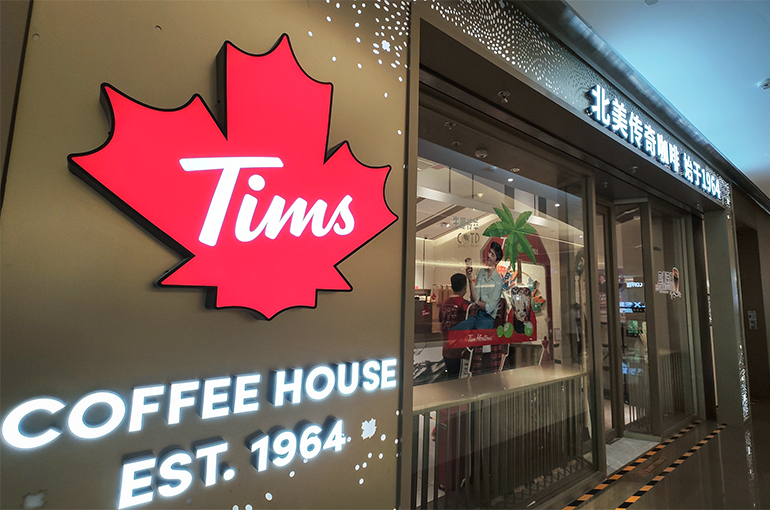 Tim Hortons Won’t Join China’s Coffee Price War as Chain Hits 1,000 Stores, Local Chief Says
Tim Hortons Won’t Join China’s Coffee Price War as Chain Hits 1,000 Stores, Local Chief Says(Yicai) Oct. 25 -- Tim Hortons will not get embroiled in the price war waging in the Chinese coffee market, according to the chief executive of the Canadian chain’s China business.
Tims China will instead focus on product differentiation and flexibly adjust its pricing strategy based on consumption and competition, Lu Yongchen said at a press conference yesterday, aiming to set itself apart with a ‘coffee + warm food’ strategy. Even though prices may be cut, this does not mean the company will join the price war, he added.
Tim Hortons, which entered the Chinese market in 2019, opened its 1,000th cafe in China yesterday, making it the first country outside of the Oakville-based company’s home nation to reach that milestone.
Tims China plans to continue expanding, but the pace of new store openings has been slower than expected. “We are increasing our store density in cities we are already present and optimizing our store network by closing those that are not performing well,” Lu said.
“The rapid development of the coffee industry is a double-edged sword,” Lu noted. “The advantage is that the popularity of coffee is increasing along with the demand from young customers. The disadvantage is that supply is growing faster than demand, causing a price war.”
Fierce competitive has arisen as a result of the fast expansion of China’s coffee market, with rivals scrambling for market share by opening more outlets and attracting price-sensitive consumers with frequent promotions, discounts, and special offers.
“I remain optimistic about the coffee industry in the long term,” Lu pointed out. “The coffee industry has changed significantly in the past few years, as the Chinese residents’ per capita coffee consumption has increased rapidly.”
In the second quarter of this year, Tims China shrank its net loss 80 percent from a year ago to CNY46.4 million (USD6.4 million). Its adjusted store earnings before interest, taxes, depreciation, and amortization, which is calculated as a fully burdened gross profit of stores excluding depreciation, amortization, and pre-opening expenses, soared 82 percent to CNY33.2 million.
Editor: Futura Costaglione